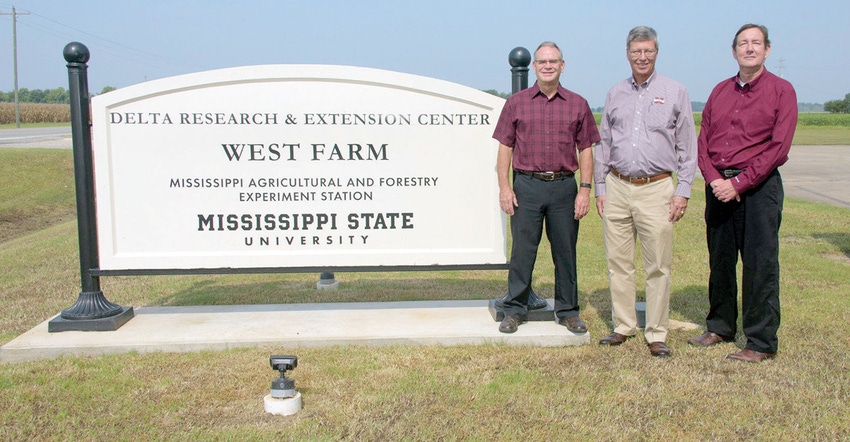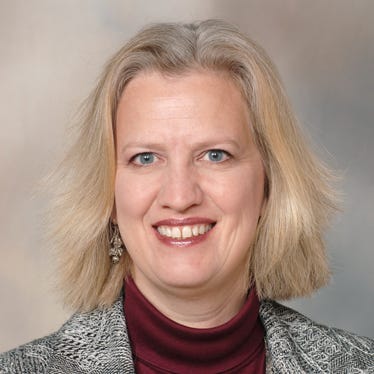February 20, 2019

A new research center in the Mississippi Delta is tasked with studying agricultural water management to protect this critical natural resource.
Jeff Johnson, head of the Mississippi State University Delta Research and Extension Center, said the center primarily focuses on waters in Mississippi, Louisiana, Arkansas and Missouri. Plans for establishing the facility began in 2014 after several meetings with researchers, regional farmers and stakeholders to discuss water-related research in the Lower Mississippi River region.
A cooperative venture between the Mississippi Agricultural and Forestry Experiment Station and the U.S. Department of Agriculture Agricultural Research Service, the center will be located at the MAFES West Farm, a former Monsanto facility, on the Stoneville, Miss., campus.
Johnson and Martin Locke, director of the ARS National Sedimentation Laboratory in Oxford, Miss., coauthored a paper detailing current research and future needs based on information gathered in the preplanning meetings. They asserted that easily available water at relatively low costs in the Mississippi River Valley Alluvial Aquifer has encouraged an overreliance on the underground source for irrigation. Their paper provided the basis for regional customers and stakeholders to request an appropriation from USDA-ARS, which was approved in the 2017 federal budget.
“In a time of great budget cuts, this shows how important water quality and availability are to the Mississippi Delta,” Johnson said. “Research at the Mississippi River Valley Alluvial Aquifer Water Research Center will gain synergy by having MAFES and ARS personnel working together in one place.”
Collaborations
Collaborations in the Lower Mississippi River Basin will include researchers from MAFES, several USDA-ARS research units, the University of Mississippi, the University of Arkansas, Arkansas State University, Louisiana State University and the University of Missouri.
Locke said scientists and stakeholders identified several issues and needs related to water management, including management practices, irrigation technologies, agronomic practices, simulation models, economic analysis, hydrology and climate.
“As we worked through these issues, we identified areas of expertise and types of scientists we needed, and then prioritized them,” he said.
The $4 million annual budget will be divided evenly between MAFES and ARS. In addition to purchasing equipment and redesigning the building, the budget includes funds for new personnel. MAFES will add three new positions: two agronomists, an agricultural engineer and a natural-resource economist. ARS will hire an agricultural engineer, a plant physiologist and a soil scientist.
“We want to develop integrated methods to conserve dwindling water resources, such as reducing water usage through management,” Locke said. “Secondly, we seek to improve on what we have through irrigation and crop-management systems that enhance soil health, water availability and quality, and crop productivity.”
Locke said the center will assess the profitability and risks associated with agriculture and conservation systems in the region.
“We also want to assess surface and subsurface water, surface runoff and contaminant movement in conservation crop-production systems at plot and field levels,” he said.
Johnson said support from former Sen. Thad Cochran, the Delta Council and the Mississippi Farm Bureau Federation was essential in pushing this project forward.
“Customers and stakeholders requested a coordinated effort for new technologies to address water balances, increase state and federal personnel to conduct research, and establish a water-resource research center to lead the effort,” he said. “The proposed multistate, multi-institution and multidisciplinary consortium should improve collaboration among scientists, better coordinate research and resource priorities, and enhance technology transfer from the research institutions to the public.”
About the Author(s)
You May Also Like






